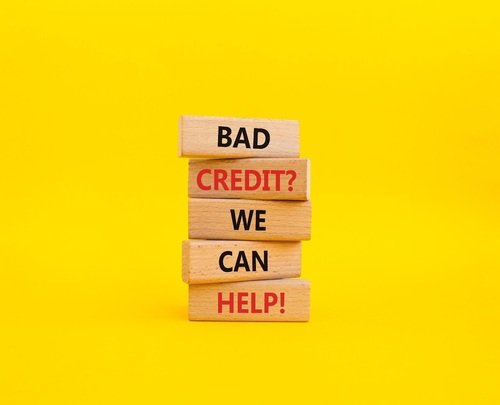The real estate industry stands at a crossroads, where traditional practices meet the urgent need for sustainability. As environmental concerns become increasingly paramount, the shift towards sustainable real estate practices is not just a trend but a necessity. This article delves into the various facets of integrating sustainability into the real estate business, covering the adoption of green building practices, the role of technology in sustainable development, the economic benefits of green investments, and the importance of community involvement in fostering a sustainable real estate market.
Embracing Green Building Practices
The cornerstone of sustainability in real estate lies in green building practices. These practices encompass a wide range of strategies, from using eco-friendly materials and renewable energy sources to designing buildings that maximize natural light and ventilation. The goal is to minimize the environmental impact of buildings, which are responsible for a significant portion of global energy use and carbon emissions.
Adopting green building standards, such as LEED (Leadership in Energy and Environmental Design), provides a clear framework for real estate developers and builders to create more sustainable and energy-efficient properties. These standards not only reduce the ecological footprint of buildings but also offer long-term cost savings in energy and maintenance expenses. By prioritizing green building practices, the real estate industry can contribute significantly to environmental conservation while enhancing the marketability and longevity of their properties.
Leveraging Technology for Sustainable Development
Technology plays a pivotal role in advancing sustainability within the real estate sector. Innovations such as smart home systems, energy management software, and advanced building materials are transforming the way properties are built, maintained, and operated. These technologies enable real estate professionals to monitor and optimize energy usage, water consumption, and waste management, making it easier to achieve sustainability goals.
Furthermore, technology facilitates the integration of renewable energy solutions, such as solar panels and wind turbines, into residential and commercial properties. This not only reduces reliance on fossil fuels but also aligns with the growing consumer demand for eco-friendly living and working spaces. As technology continues to evolve, its application in sustainable real estate development promises to unlock new possibilities for efficiency, innovation, and environmental stewardship.
Realizing the Economic Benefits of Green Investments
Investing in sustainable real estate is not only beneficial for the planet but also offers substantial economic advantages. Properties that adhere to green building standards typically command higher market values and rental rates, reflecting the growing consumer preference for sustainable living environments. Additionally, the energy savings and lower operational costs associated with green buildings translate into higher net operating incomes, making them attractive investments.
Moreover, as governments and financial institutions increasingly recognize the importance of sustainability, incentives and financing options for green projects are becoming more prevalent. These financial mechanisms further enhance the economic viability of sustainable real estate investments, encouraging more developers and investors to embrace green practices.
Cultivating Sustainable Communities
The pursuit of sustainability in real estate extends beyond individual buildings to encompass entire communities. Real estate professionals have the opportunity to foster sustainable living practices within the communities they serve by promoting initiatives such as recycling programs, community gardens, and green transportation options. By engaging residents and stakeholders in sustainability efforts, they can create a collective sense of responsibility and action towards environmental conservation.
Additionally, the concept of Circle Prospecting in Real Estate can be adapted to focus on sustainability, enabling professionals to connect with and educate their networks about the benefits and importance of sustainable living. This community-centric approach not only enhances the social fabric of neighborhoods but also contributes to broader environmental goals, reinforcing the role of the real estate industry as a catalyst for positive change.
Enhancing Energy Efficiency Across Portfolios
Energy efficiency stands as a critical pillar in the sustainability efforts of the real estate sector. By focusing on reducing energy consumption across property portfolios, real estate businesses can significantly lower their environmental impact while improving cost-efficiency. Strategies such as retrofitting older buildings with energy-efficient windows, insulation, and HVAC systems, and incorporating energy-saving appliances and lighting in new constructions, are essential steps toward this goal.
Moreover, the implementation of building automation systems can further optimize energy use, adjusting heating, cooling, and lighting based on occupancy and time of day. These advancements not only contribute to a reduction in greenhouse gas emissions but also offer a competitive advantage in the real estate market, appealing to tenants and buyers increasingly concerned with sustainability and utility costs.
Prioritizing Water Conservation
Water conservation is another vital aspect of sustainability in real estate. With water scarcity becoming a pressing issue globally, real estate businesses have a responsibility to implement measures that reduce water usage and promote efficient management of this precious resource. This can be achieved through the installation of low-flow fixtures, rainwater harvesting systems, and water-efficient landscaping.
In addition to these on-property measures, real estate professionals can advocate for and participate in local water conservation initiatives, further emphasizing their commitment to sustainability. By prioritizing water conservation, the real estate industry can play a significant role in addressing global water challenges while enhancing the appeal and sustainability of their properties.
Advancing Sustainable Urban Planning
Sustainable urban planning is essential for creating livable, environmentally friendly cities that can accommodate the growing urban population without exacerbating ecological degradation. Real estate developers and planners have a unique opportunity to shape the future of urban environments by integrating sustainability principles into their projects. This includes promoting mixed-use developments that reduce the need for transportation, designing pedestrian-friendly spaces, and preserving green areas within urban settings.
Collaboration with local governments, urban planners, and communities is crucial in this endeavor, ensuring that development projects align with broader sustainability goals and urban planning initiatives. By advancing sustainable urban planning, the real estate industry can contribute to the development of cities that offer a high quality of life while minimizing their environmental footprint.
Advocating for Policy and Regulatory Support
For sustainability in real estate to reach its full potential, supportive policies and regulations are essential. Real estate professionals can play a proactive role in advocating for policies that encourage sustainable development, such as tax incentives for green buildings, mandatory energy efficiency standards, and support for renewable energy integration.
Engaging with policymakers, participating in industry associations, and forming coalitions can amplify the real estate sector’s voice in the policy-making process. By advocating for a regulatory environment that supports sustainability, the industry can accelerate the transition towards more sustainable practices, benefiting businesses, communities, and the planet alike.
In conclusion, integrating sustainability into the real estate business is a multifaceted endeavor that encompasses green building practices, technological innovation, economic incentives, and community involvement. As the industry navigates the challenges of the 21st century, the shift towards sustainability offers a pathway to resilience, profitability, and environmental stewardship. By embracing these principles, real estate professionals can lead the way in building a more sustainable future, one property at a time.




